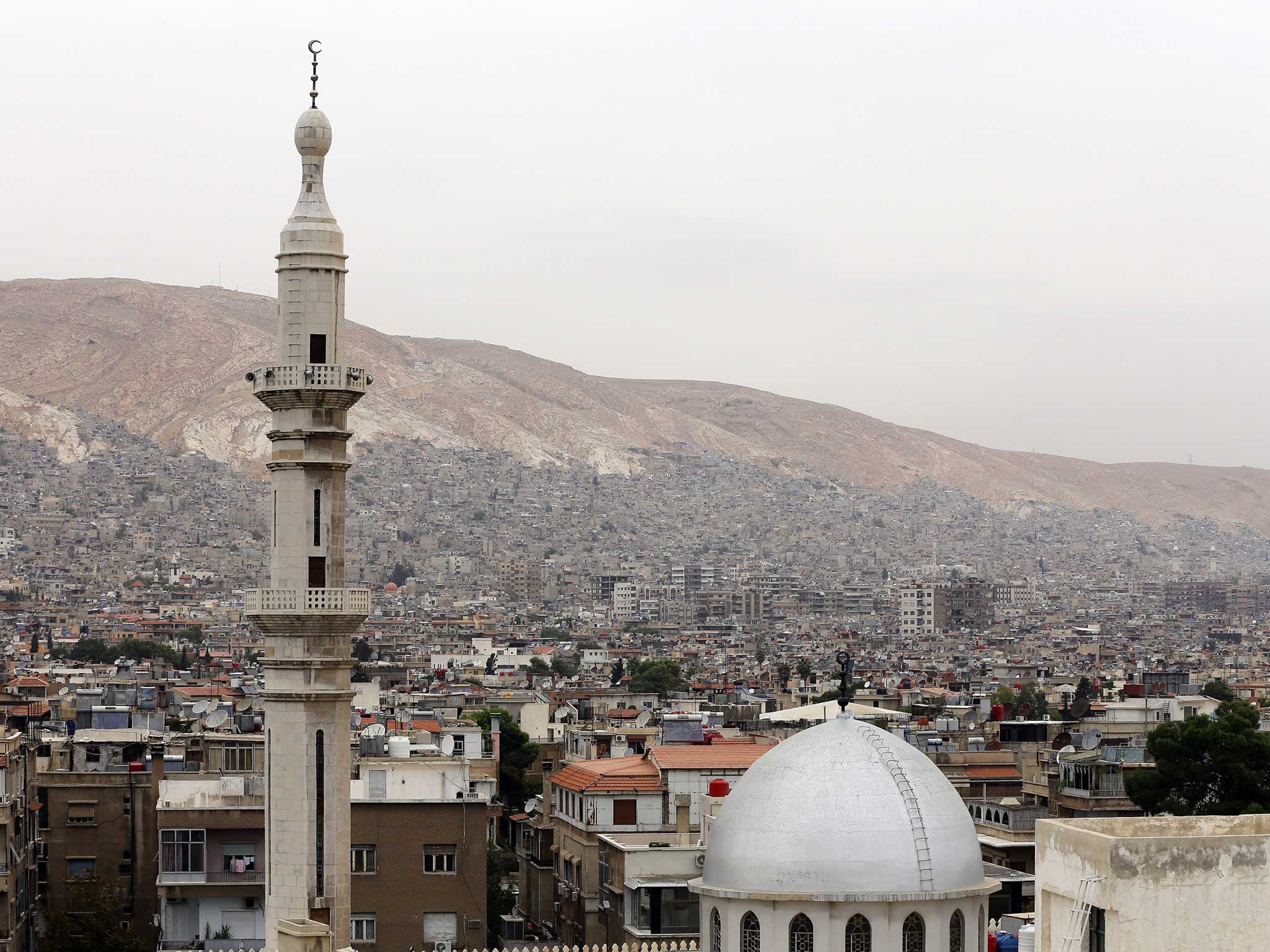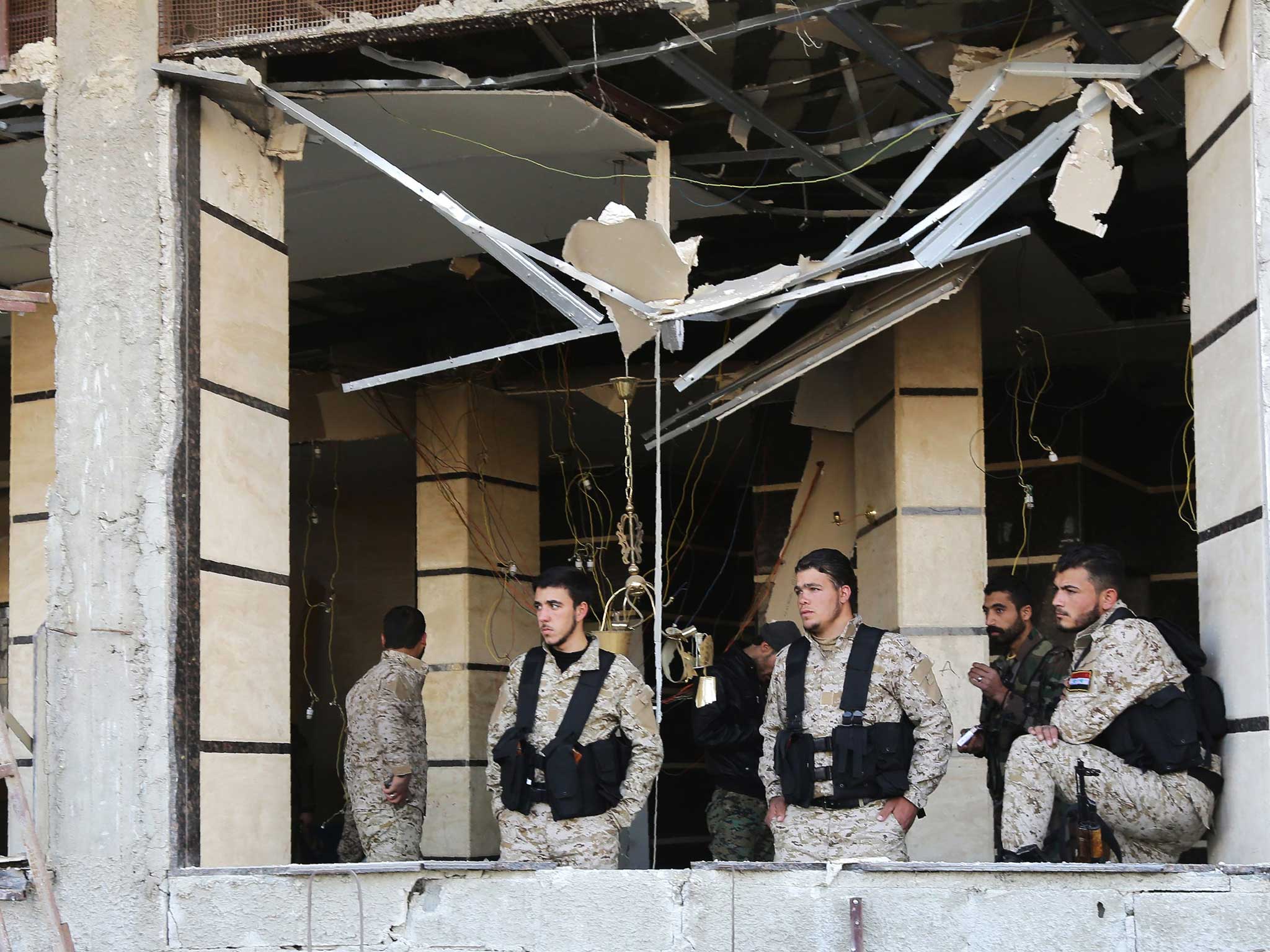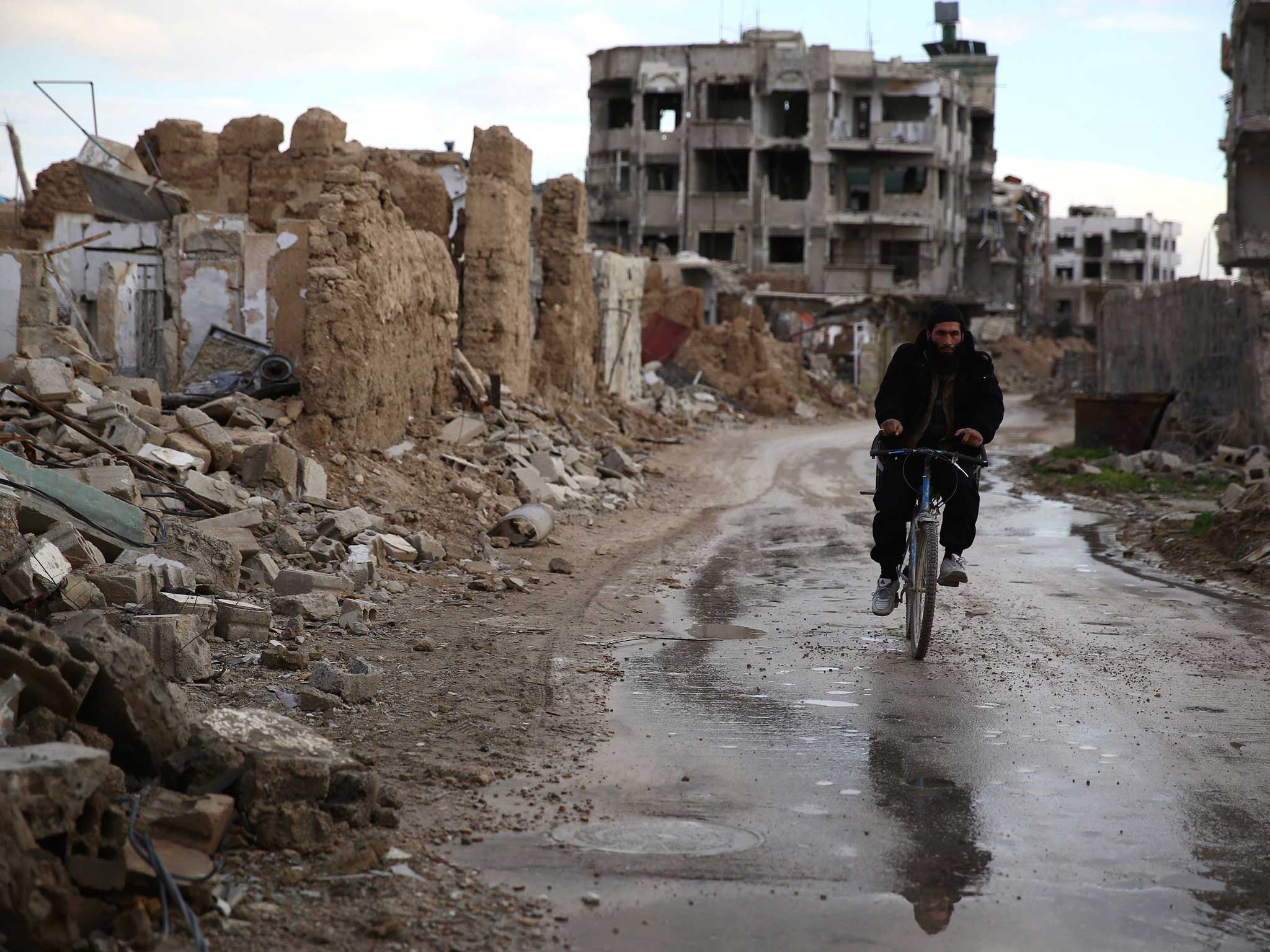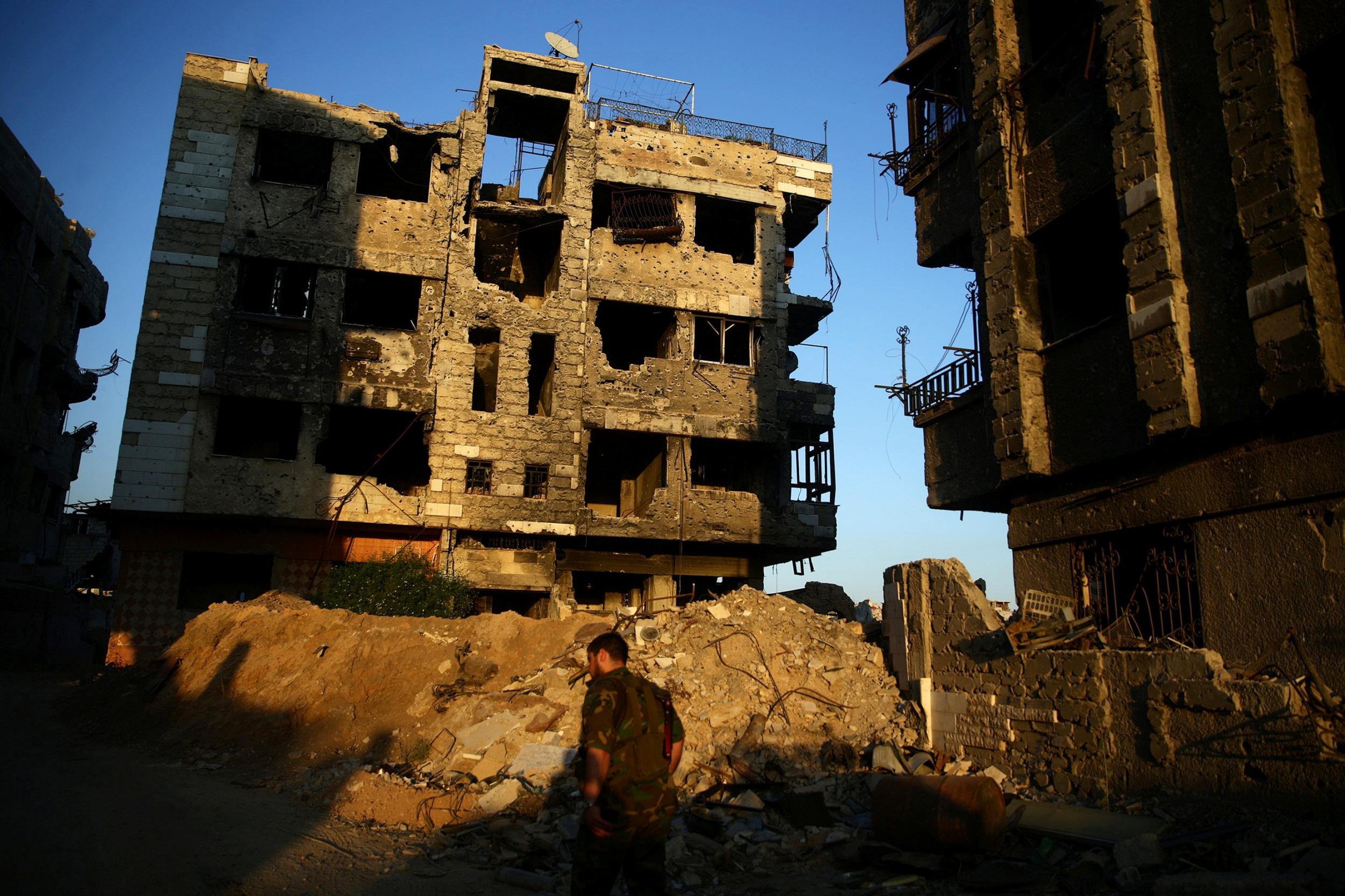People in Damascus desperately try to cope with the dangers of war
Exclusive: In the second of a four-part series from Damascus, Patrick Cockburn finds that violence and deprivation have become part of everyday life for Syrians, but they can still be appalled by the brutality of the conflict

Your support helps us to tell the story
From reproductive rights to climate change to Big Tech, The Independent is on the ground when the story is developing. Whether it's investigating the financials of Elon Musk's pro-Trump PAC or producing our latest documentary, 'The A Word', which shines a light on the American women fighting for reproductive rights, we know how important it is to parse out the facts from the messaging.
At such a critical moment in US history, we need reporters on the ground. Your donation allows us to keep sending journalists to speak to both sides of the story.
The Independent is trusted by Americans across the entire political spectrum. And unlike many other quality news outlets, we choose not to lock Americans out of our reporting and analysis with paywalls. We believe quality journalism should be available to everyone, paid for by those who can afford it.
Your support makes all the difference.High on the upper slopes of Mount Qasioun, which towers over Damascus, is the Magharat al-Dam or “Cave of Blood” where Cain is believed to have killed Abel. The impression of a large hand on a rock inside the cave was supposedly made by Abel as his brother murdered him.
It feels appropriate that the site of the first fratricidal killing should look down on a city ravaged by civil war over the last five years. The cave is at the top of hundreds of steps that lead from a narrow and precipitous laneway winding steeply upwards through a poor neighbourhood in the Reku Aldeen district called Hajeh Anyseh, built into the side of Mount Qasioun. Despite the difficulty in reaching the mountain-top shrine, Mohammed Hatem, a 32-year-old Palestinian born in Syria, who took us there, says that Muslims of all sects – Sunni, Shia and Alawites – visit it because prayers there are believed to be particularly acceptable to God.
In the close packed houses of Hajeh Anyseh, people are aware that they live near the place which saw the first murder in human history. They relate what happened then to their own lives which are filled with violence. Mr Hatem drives a minibus with an especially powerful engine to negotiate roads which zig-zag up the mountainside and are too steep for ordinary vehicles. He says that, earlier in the war, an armed opposition group broke into the district and 200 people were killed in three days of fighting. He did not say if they had support in the neighbourhood, but many locals are Kurds who are unlikely to be sympathetic to the rebels.

Military conscription is one of the main topics of conversation in Damascus. Mr Hatem says: “I was lucky that I had just completed my military service when the war started in 2011 and so far I have not been called up again.” Asked if many soldiers from the district had been killed or wounded in the fighting, he said that two had just been killed – probably by a mine explosion – in the district of Daraya, a rebel stronghold that surrendered on terms last week after a three-year siege under an agreement by which armed opposition fighters were taken to a rebel-held area of Idlib in the north of Syria. The political balance of power in Damascus is changing in favour of the government. After a rebel offensive in 2012 it became a patchwork of government and rebel-held areas, but many rebel enclaves have been besieged and pounded into submission.
Mr Hatem says that life in Hajeh Anyseh is tolerable with electricity supply three hours on and three hours off as in the rest of the Damascus. The lack of electricity becomes more serious in winter when heaters are needed as the top of Mount Qasioun becomes blanketed in snow. Running water is plentiful, but there is a shortage of bottled gas for cooking. The inhabitants of Hajeh Anyseh have always been poor so they may feel less shocked by the collapse in the Syrian standard of living which has seen prices soar while salaries stagnate, requiring employees to desperately search for a second job in an economy in which the unemployment rate may be as high as 65 per cent.
I was last in Damascus two-and-a-half years ago when security was worse than today in the government-held parts of the city. I stayed in Bab Touma, a Christian district in the Old City which was regularly mortared by a nearby rebel district called Jobar producing a trickle of casualties every day. The thunder of government artillery on Mount Qasioun firing into besieged opposition areas boomed across the city every night. Even then, people were getting used to this, but not as accustomed as they are now when many forget what it is like to live a normal life. The present mood in Damascus reminds me of Beirut halfway through the 15-year civil war (1975-1989)

Earlier still in the conflict, people in Damascus were inexperienced in assessing the degree of danger they were in and would under or over-react to each episode of fighting. I remember in early 2012 taking refuge from sniper fire in a shop selling wedding dresses in the Jaramana district close to the airport road. The owner and I were both crouching down by the counter when three young women came into the shop, oblivious of the shooting outside, and excitedly discussed which of the flame-coloured dresses they would like to buy.
Four years later those same young women would be more likely to spend what little money they have left on food rather than dresses. After the Syrian pound plunged in value and salaries were raised by a much smaller margin, a family that lived on the equivalent of $400-500 a month must now make do with $100. The definition of what is a luxury has changed radically since the start of the war. “Many families no longer eat chicken or lamb because they are so expensive,” commented one friend. “And, if they do buy them, the quantity is a couple of hundred grams just to have a taste of the meat. They may buy locally grown fruit for their children, but not bananas, which are imported and cost too much.” Holding a good job himself, the friend added that he has spent $300 to replace a broken car mirror which would have cost him $70 before the war.
As with almost every aspect of the Syrian crisis, not all the arrows point in same direction. Mahir Jalhoum, a 22-year-old architectural student, says that while the real value of salaries may be well down and employment difficult to find, there are now five million Syrian refugees, many of whom are working abroad and sending money back to their families. He says that “if somebody is remitting $100 a month to relatives that goes a long way in Syria”. He adds that nightlife entertainment in cafés and restaurants is expanding fast with 20 bars opening in the Bab Sharqi neighbourhood in the Old City alone in the last couple of months. He himself was about to go off on a camping holiday with 40 other people in the mountains near Latakia on the Mediterranean coast.

People do adapt to new reduced circumstances, though they may not like doing so. In the bustling Bzoureyeh souk, a covered market in the Old City selling everything from perfumes and honey to dates and coffee beans, there is a row of small booth-like shops selling traditional medicines made from rare herbs and other more exotic compounds. Sitting behind a counter on which were neatly arrayed bowls of natural medication, was a middle-aged man named Abed. He explained that by profession he is a geologist specialising in oil and gas exploration and he had worked in Syria, Saudi Arabia and the Gulf for 27 years. But there is little work for geologists in Syria today since the oil and gas fields in eastern Syria were seized by Isis during their explosive advance in 2014 so he had switched to traditional medicine.
Asked how his business was doing, Abed said that he had few foreign customers, but that Syrians were buying more. He explained that because of the war and the economic collapse “most of the famous and experienced doctors in Syria have left the country and those that are left are second rate”. Abed said that, as a result, Syrians do not trust the diagnoses of their illnesses or the medicines they are prescribed, so they prefer turn to traditional remedies in the hope that they will be more effective.
This sounded convincing and many Syrians had complained to me about the decline in the quality of the health service and education system in the country. But Abed has a certain self-interest in bad-mouthing doctors and hospitals dealing in scientific as opposed to traditional medicine, so I went to see Dr Hashem Saker, the general director of the Al-Mousat University Hospital, which is the largest teaching hospital in Syria. He said it was difficult to get spare parts for medical equipment because of economic sanctions, but denied that the quality of care had gone down. “About 30 per cent of our professors and highly qualified staff have left,” he said. “Most went to the Gulf where they were offered jobs and better money.”
The 200-bed hospital was under great pressure carrying out between 100 and 120 operations a day and treating between 600 and 1,000 emergency cases. Dr Saker admitted that conditions had got tougher but “we are getting used to the situation and the death rate has not gone up. We are still teaching as many hours as before”. There had been a shortage of medicines because many of Syria’s pharmaceutical factories were in Aleppo and 90 per cent had closed. But several of these had reopened elsewhere and the UN was helping obtain spare parts and equipment. Some of the doctor who had gone to the Gulf were returnng because conditions were “not as rosy as they had been promised.”
It was encouraging that the health service in Syria was not in such a bad way as many in Damascus had claimed. But this more buoyant mood lasted only a few minutes until I started to meet the patients. I had asked to meet three people who had been wounded by an Isis suicide bomber on the Old Beirut Road the day before, but one was dead the two others had been discharged. Then I saw a hospital bed on which was lying the small body of 12-year-old Yazad Dahar, his head swathed in bandages, whose eyes had been torn out and his face disfigured by an explosion in the northern town of Manbij two days earlier. His father was standing by his bed and his mother in black traditional dress was crying loudly a few feet way. The parents had left their other five children in Manbij and somehow got their wounded son to Damascus, but doctors in the ward said they could do little. “I am so poor,” sobbed his mother. “And I have lost everything.”
Join our commenting forum
Join thought-provoking conversations, follow other Independent readers and see their replies
Comments